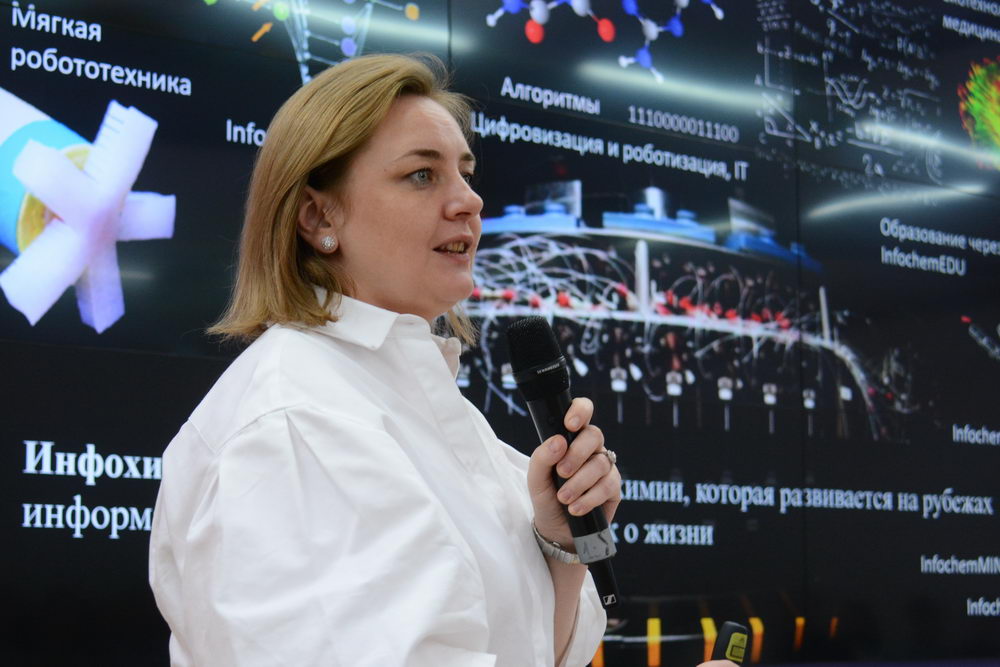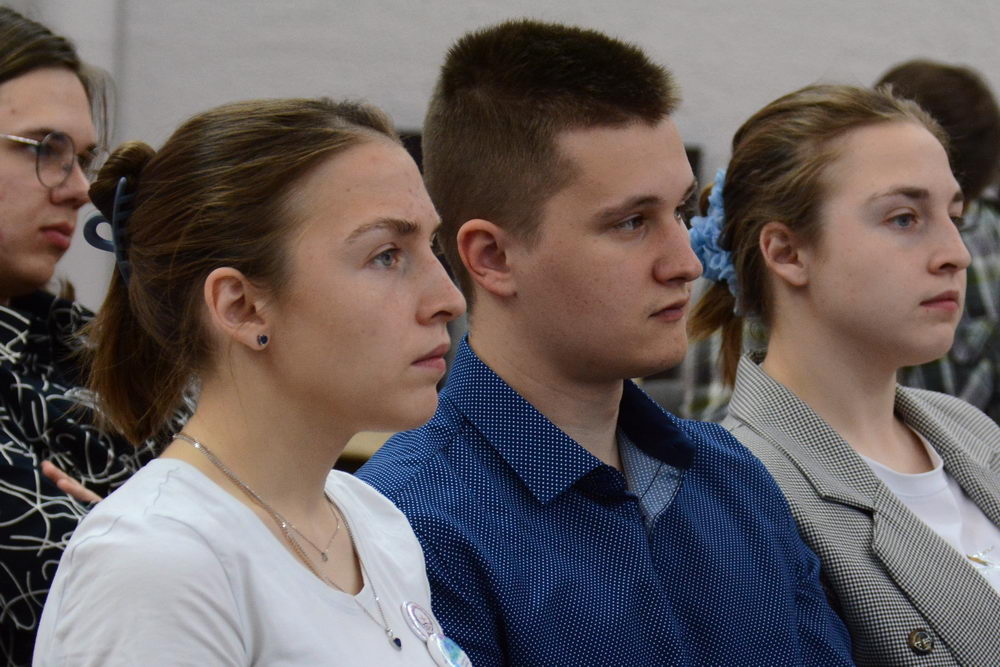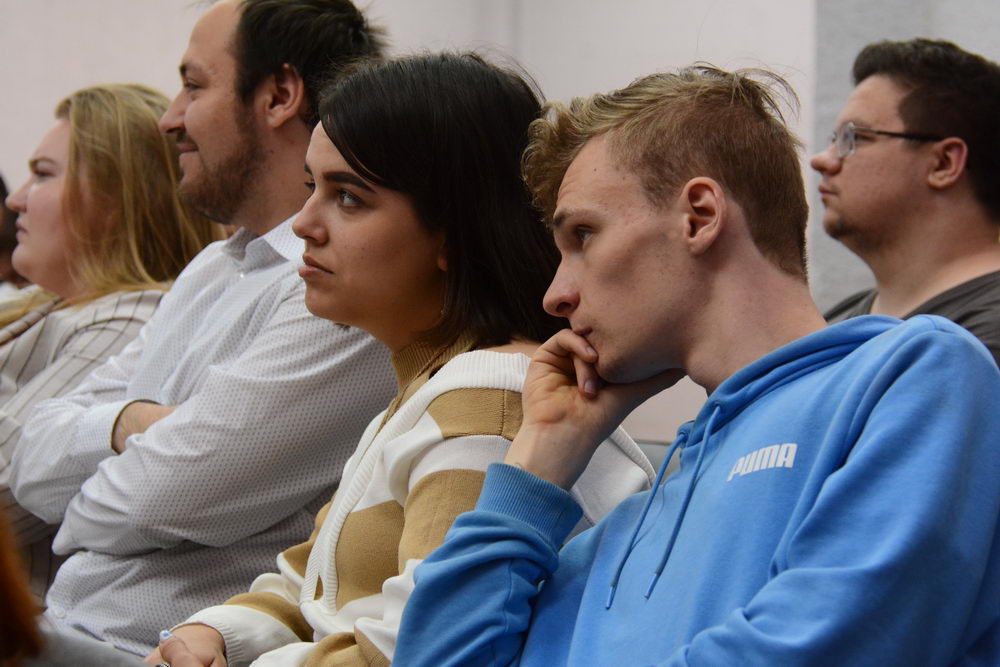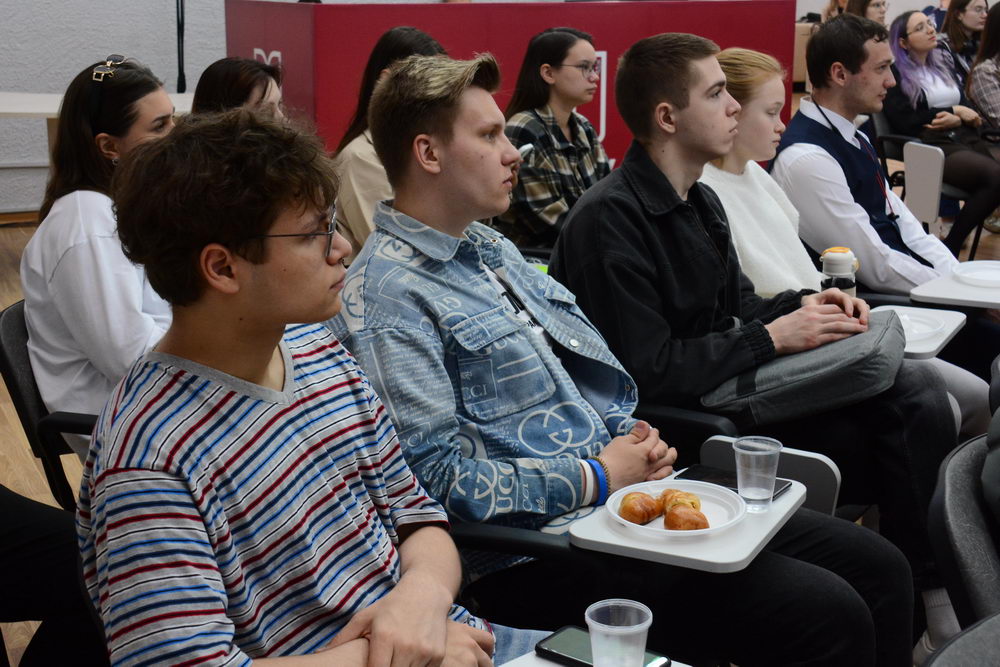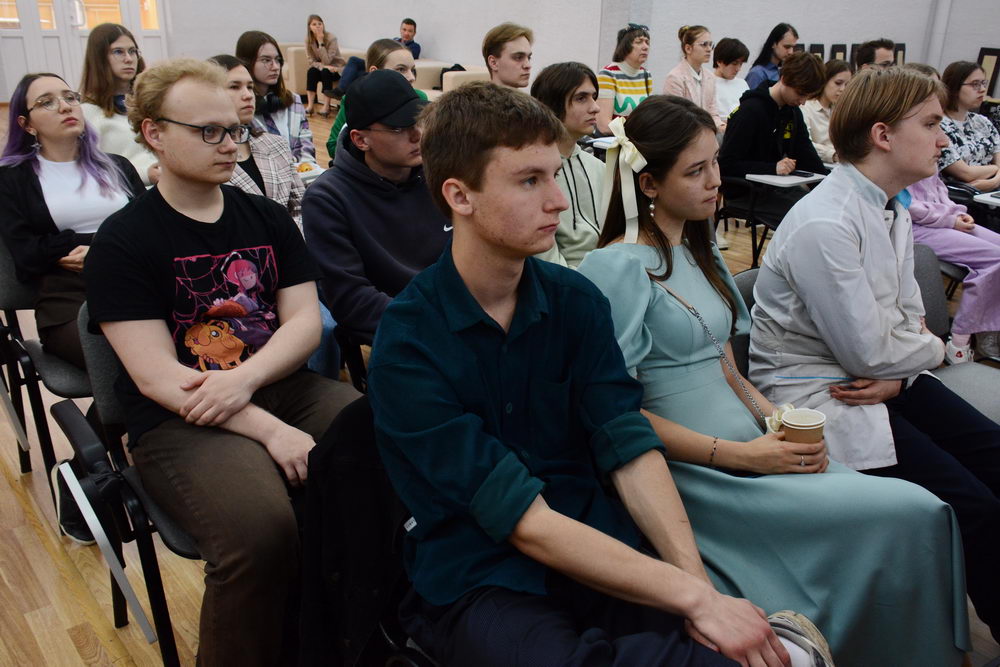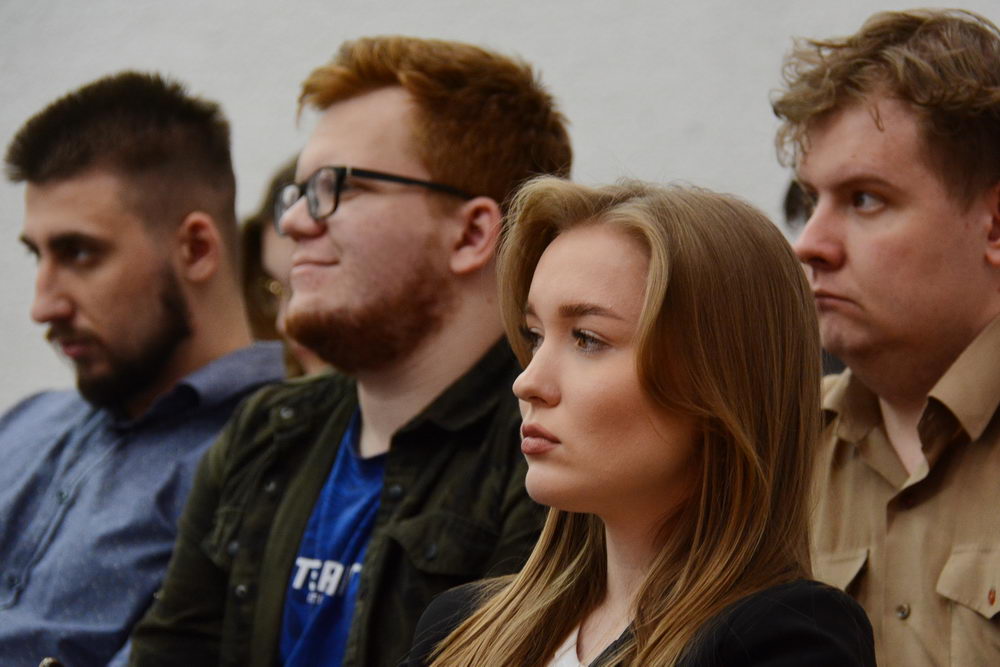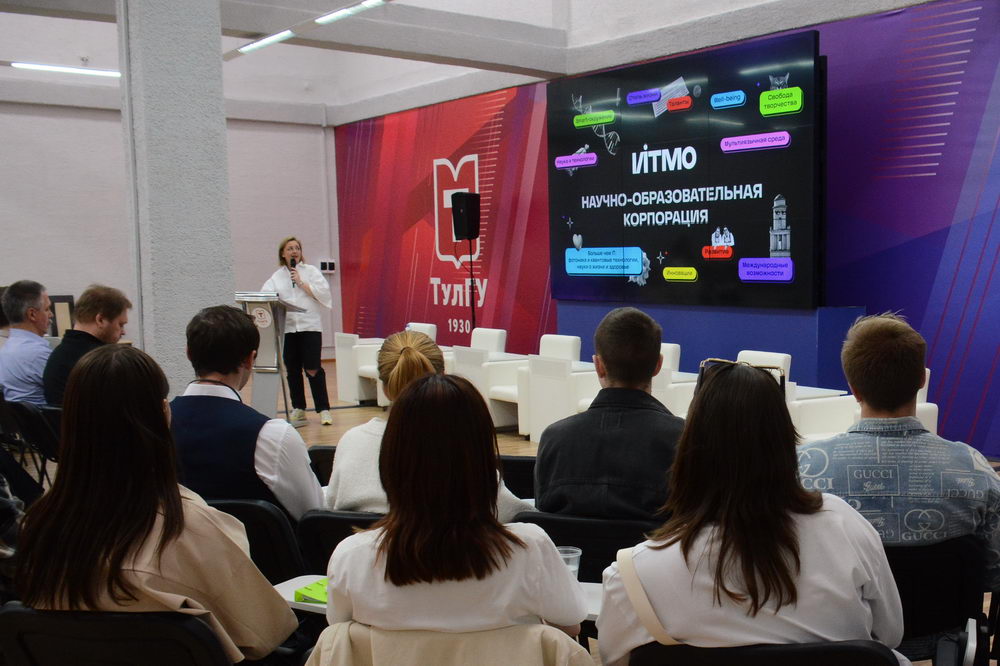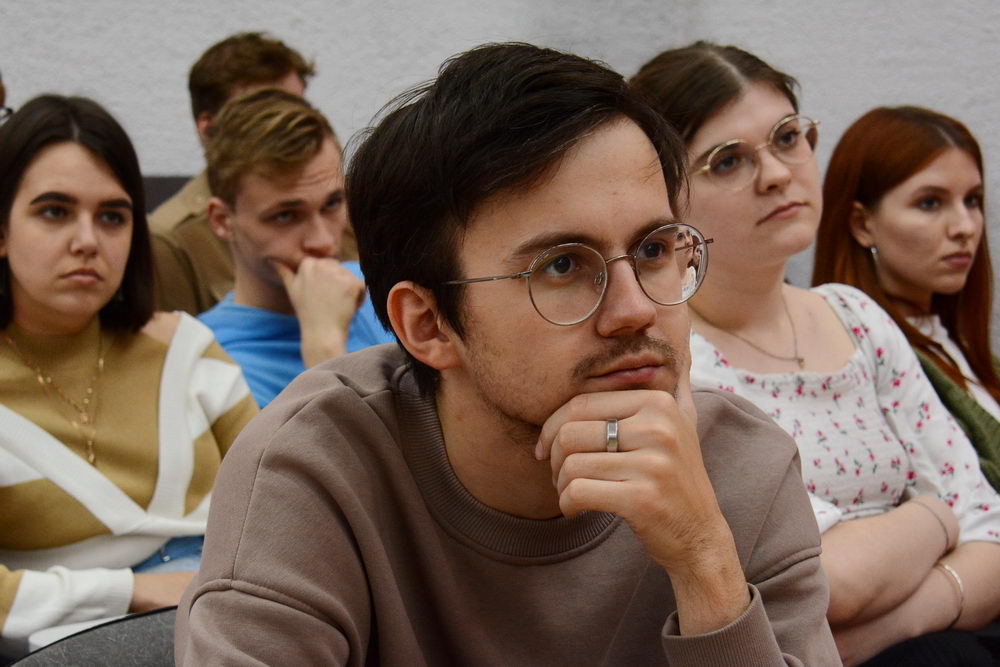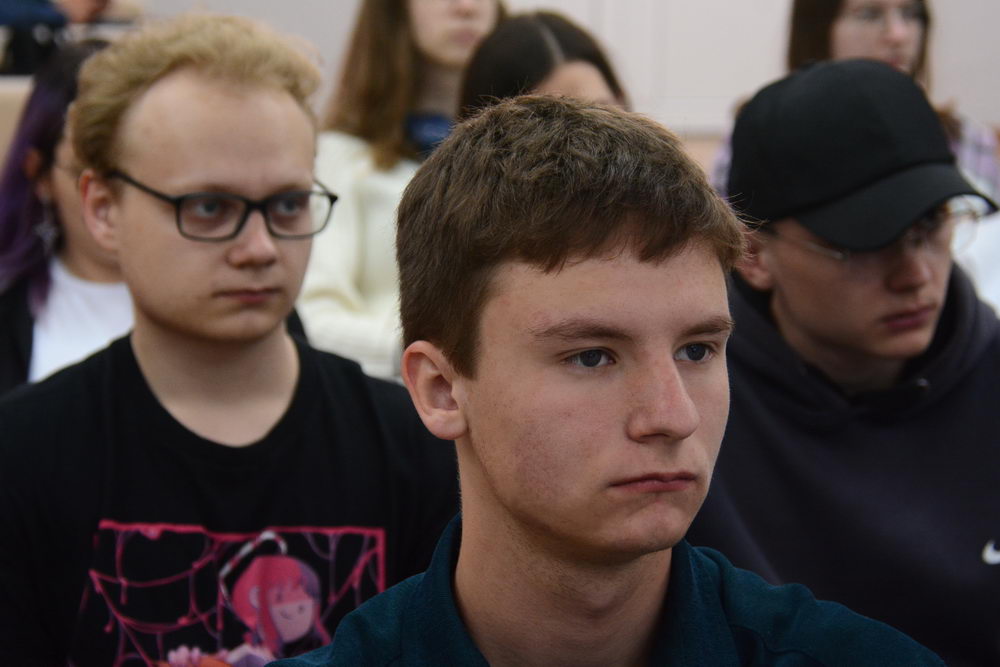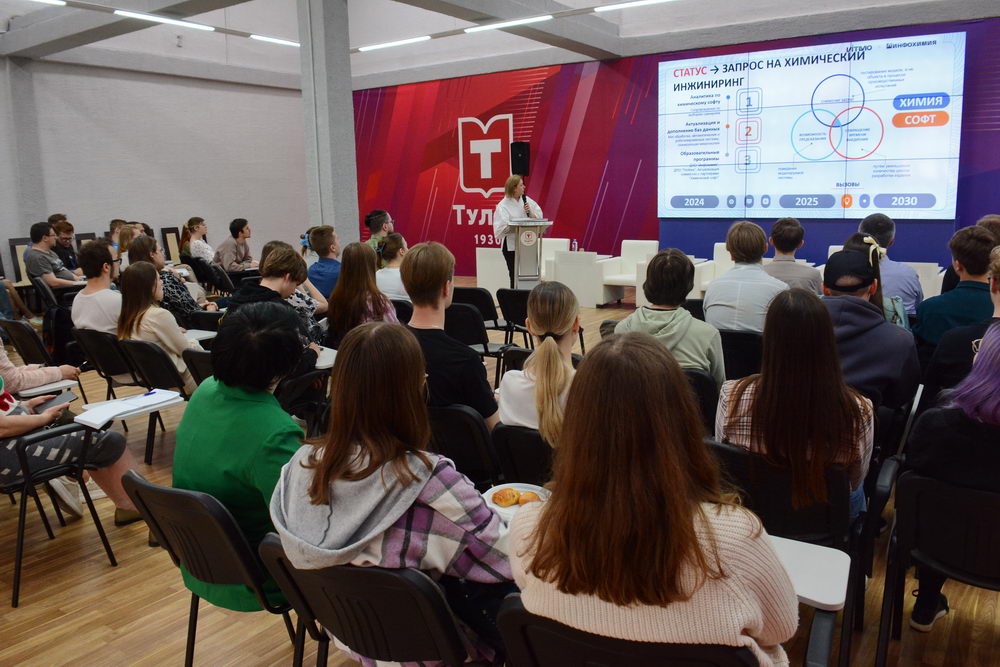- 24.05.2024
Chemistry + IT
On 24 May, Tula State University hosted a ‘Science Café’ event.
The project of our university was supported by a grant from the Federal Agency for Youth Affairs (Rosmolodezh).
On this day, students, postgraduates, teachers of the Natural Science Institute and the Institute of Applied Mathematics and Computer Science, as well as employees of research laboratories, met with Yekaterina Vladimirovna Skorb, Doctor of Chemical Sciences, Professor, Director of the Scientific and Educational Centre of Infochemistry of the St. Petersburg National Research University of Information Technologies, Mechanics and Optics (ITMO).
In 2005, she graduated with honours from the Faculty of Chemistry of the Belarusian State University. Since 2008, she has been engaged in research activities related to the development of a new generation of biomaterials at the Max Planck Institute. In 2016-2017, she worked at Harvard University as a member of the group of the most cited chemist George Whitesides.
As the guest herself admitted, her choice of her future profession was greatly affected by the so-called ‘Genie in a bottle’ experiment. As a child, she really wanted to blow something up in her father's garage, that is, to conduct an experiment. Chemists themselves create the subject of their study and this, Yekaterina is convinced, is always magic.
Infochemistry that was the subject of the scientist's lecture is a fundamental field of chemistry that develops at the interface between information technology and life sciences. It originated at Harvard. Infochemistry is successfully implemented at ITMO University, which is already rightfully considered a scientific and educational corporation.
Yekaterina Vladimirovna told the Science Café participants about chemical databases, the Syntelli programme, the open platform “Decimer.ai” for automated identification, segmentation and recognition of optical chemical structures in scientific publications, a web application for determining optimal reaction conditions for a pair of reagents, both those already occuring in the database and new substrates, robotisation in chemistry and chemical technologies, and the use of robots for chemical tasks.
The guest presented ITMO University projects in the interests of industrial partners. In particular, she discussed QSAR modelling for predicting the properties of oils, the mechanism of antioxidant effect of phenols and amines, and a method for determining the octane number of petrol.
In her speech, Yekaterina Vladimirovna paid special attention to the hackathons held by the Centre for Infochemistry of ITMO University, for example, on digital pharmacology and predictive modelling, as well as the ongoing programme of additional professional training.
Maxim Chelyukanov, a first-year master's student of Chemistry, junior researcher in the laboratory of biologically active compounds and biocomposites, shared his impressions.
- I liked the lecture because it touched on many areas of application of artificial intelligence - both directly in science, organic synthesis in our case, and commercial projects,’ he said. -Furthermore, I have developed ideas on how I could apply artificial intelligence to my own scientific work. Naturally, for those of us at the beginning of our scientific careers, it is always beneficial to engage in discussions with such accomplished scientists.
Tatiana Krikunkova
Photos by Mikhail Gindin


